Author T. Martin Bennett of 'Wounded Tiger' reveals a stunning Pearl Harbor-related story
"Wounded Tiger" by T. Martin Bennett tells the story of Mitsuo Fuchida, the Japanese pilot who led the attack on Pearl Harbor, then converted to Christianity, inspired by examples of love set by Americans Jacob DeShazer and Peggy Covell.
Mitsuo Fuchida is one of the most notorious villains in American history.
The Japanese pilot, handpicked by Admiral Isoroku Yamamoto, led the surprise attack on United States forces at Pearl Harbor on Dec. 7, 1941.
The date lives in infamy 82 years later. More than 2,400 Americans were killed by Fuchida and the 146 pilots under his command.
It was a triumphant moment for Fuchida, indoctrinated by Japan’s merciless samurai code, which demanded hatred for and revenge upon its enemies.
But after the war — he embraced a new moral code.
"Love thy enemy," T. Martin Bennett, author of epic World War II tale "Wounded Tiger," told Fox News Digital in an interview.
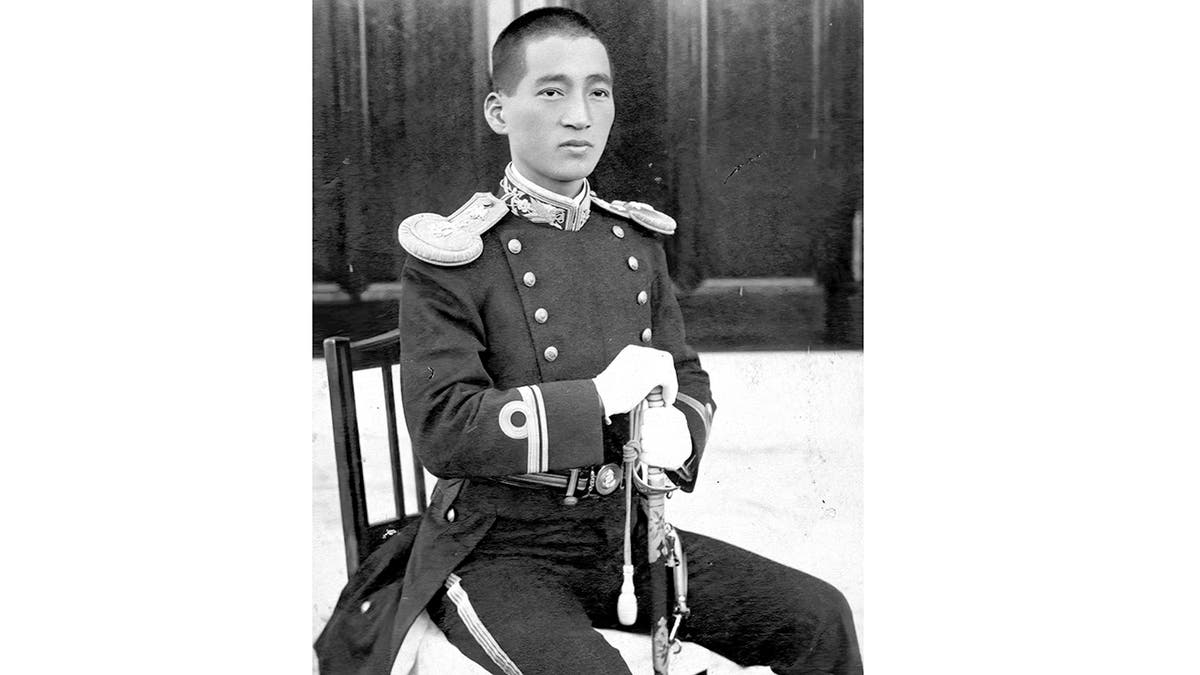
Mitsuo Fuchida, shown here as a young officer in 1927, was the Japanese pilot who led the surprise attack on Pearl Harbor on Dec. 7, 1941. (Stanford Hoover Archives/T. Martin Bennett)
"Fuchida’s calling was not to kill people. It was to be an evangelist. He got called to tell the Good News of Jesus Christ."
The pilot who led the attack on Pearl Harbor converted to Christianity after the war, renounced his warrior past and traveled throughout the United States, Japan and Europe preaching the word of Christ, salvation and forgiveness.
"He got called to tell the Good News of Jesus Christ."
"He learned to love the United States," said Bennett, adding that Fuchida's children became United States citizens.
Bennett calls his book "the true story of the pilot who led the Pearl Harbor attack, whose life was changed by an American prisoner and by a girl he never met."
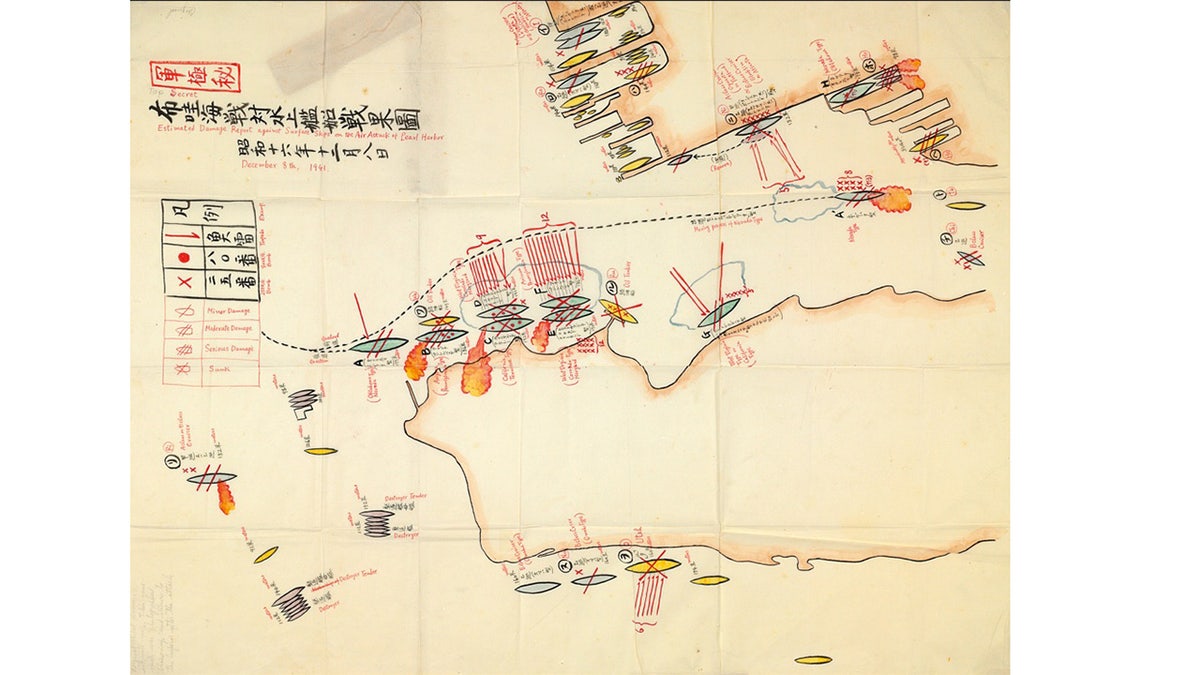
Mitsuo Fuchida, the pilot who led Japan's attack on Pearl Harbor on Dec. 7, 1941, painted a map of the attack from an aerial perspective and personally shared it with Emperor Hirohito. (National Archvies/Public Domain)
An entrepreneur and author from Tennessee, Bennett has spent 18 years uncovering layer after layer of the remarkable but little-known story of the architect of infamy-turned-Christian soldier.
"The more I researched his life, the more remarkable it got," said Bennett.
THE ADVENT CALENDAR AND HOW WE USE IT TO ‘PREPARE SPIRITUALLY’ FOR CHRISTMAS
"Wounded Tiger" relays the chance encounters that Fuchida had after the war — plus the stories of two Americans who suffered horribly from Japanese atrocities during World War II.
Jacob DeShazer was an airman on the Doolittle Raid on Tokyo in April 1942; Peggy Covell grew up in Japan in a family of Christian teachers.
DeShazer underwent a spiritual awakening after getting his hands on a Bible while spending 40 months of torture as a Japanese prisoner of war.
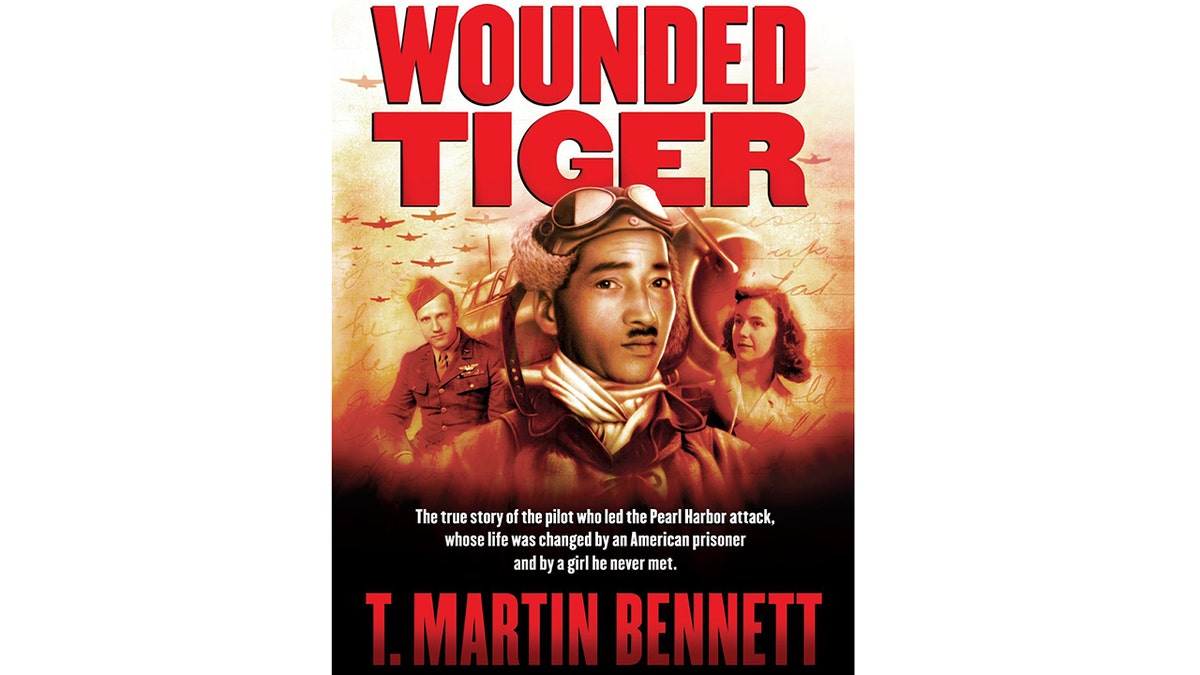
"Wounded Tiger" by T. Martin Bennett tells the tale of Mitsuo Fuchida, the Japanese pilot who led the attack on Pearl Harbor and later underwent a spiritual conversion. (Dynamis Books)
He began treating with love the guards who tormented him.
They responded "by treating DeShazer as a brother," said Bennett.
Fuchida "wanted to be a rock star in the Japanese military."
Covell, for her part, returned to the United States during the war, while her parents became teachers at Christian schools in the Philippines. They were killed by Japanese soldiers in 1943.
She responded by volunteering at a hospital in Utah that treated Japanese prisoners of war.
"The prisoners called her an angel, because she was so nice to them," said Bennett.
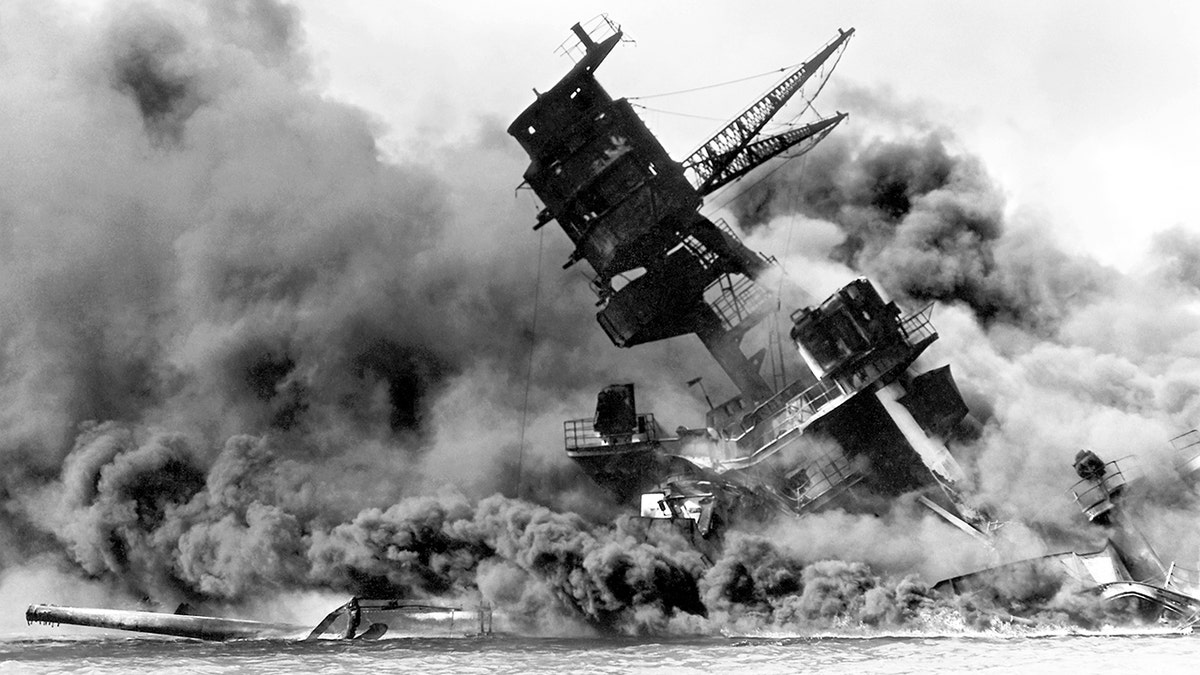
The USS Arizona (BB-39) burning after the Japanese attack on Pearl Harbor, Dec. 7, 1941. (History/Universal Images Group via Getty Images)
One of the men she treated, Kazuo Kanegasaki, was the engineer responsible for maintaining the aircraft of the Japanese war hero who led the attack on Pearl Harbor.
Fuchida spent the war possessed with hatred for the United States while pursuing his own personal ambitions.
"He wanted to be a rock star in the Japanese military," said Bennett.
His moment arrived on the morning of Dec, 7, 1941
"Our duty is … to annihilate the enemies of Japan and to establish order for the future, the imperial way!" Fuchida told his fellow airmen aboard the deck of a Japanese aircraft carrier, in Bennett’s account.
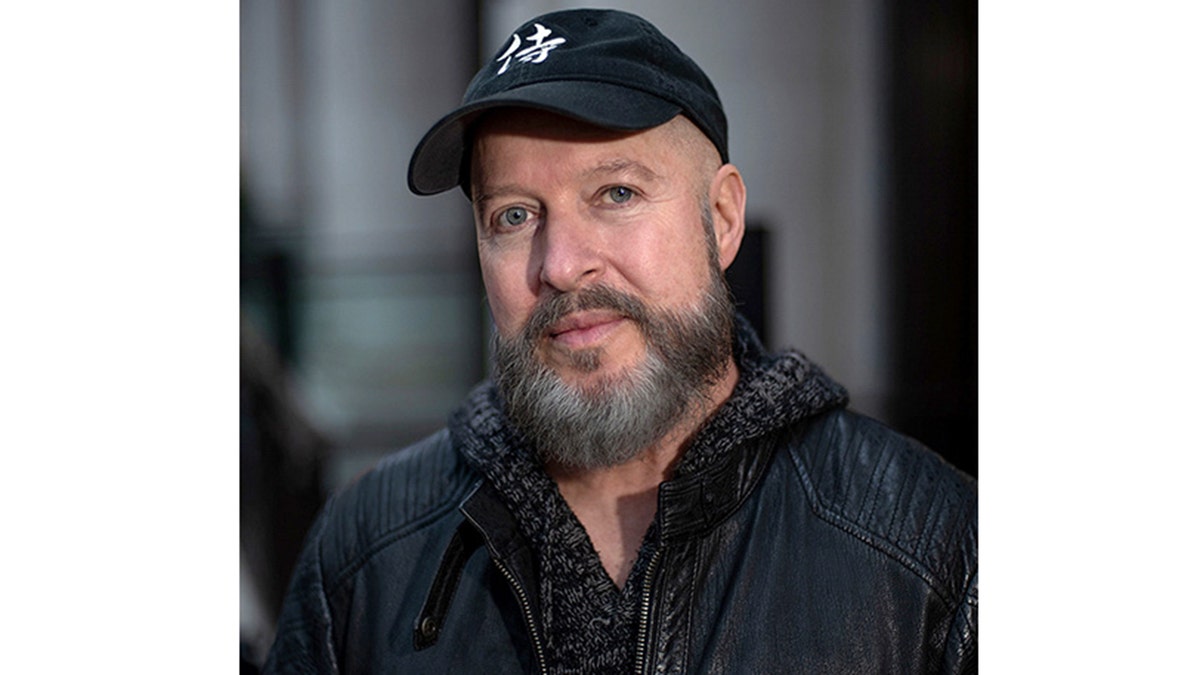
T. Martin Bennett is the author "Wounded Tiger," the story of the Japanese pilot who led the attack on Pearl Harbor but underwent a spiritual conversion after the war. Bennett spent 18 years researching the story. (Courtesy T. Martin Bennett)
The attack achieved total surprise, catching the U.S. Navy, and the American people, asleep at the wheel of world history.
More than 900 Americans are still entombed where they died within the hull of the U.S.S. Arizona, the symbol of the horror inflicted upon the United States military that day.
"Tora! Tora! Tora!" — Fuchida's triumphant message of victory at Pearl Harbor
It was Fuchida himself who sent the celebratory message of victory — "Tora! Tora! Tora!" — back to Japanese leaders while still circling over the hell his men unleashed below on Pearl Harbor.
"Tora! Tora! Tora!" — "tora" means "tiger" in Japanese — was the title of an Oscar-winning movie about the attack in 1970.
The original telegraph containing the message appears in "Wounded Tiger," which is the first time it's ever been published in a book, Bennett believes.
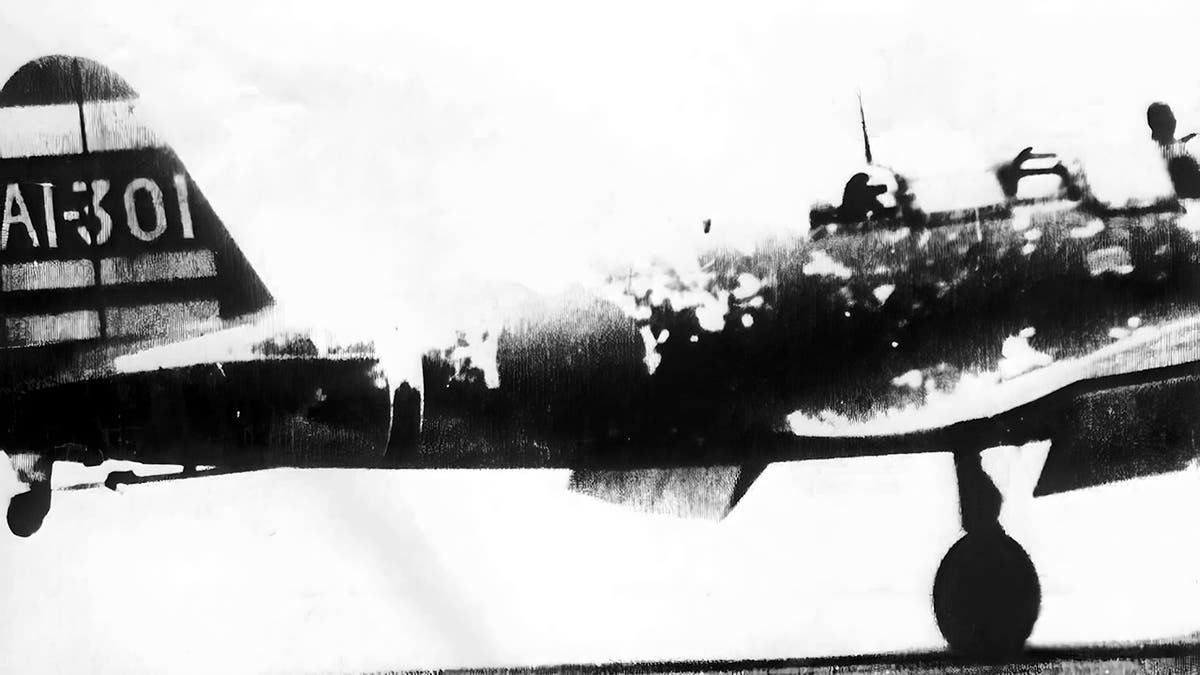
Pilot Mitsuo Fuchida's war-torn Japanese bomber. T. Martin Bennett, author of "Wounded Tiger," believes it's the same aircraft that Fuchida flew while leading the attack on Pearl Harbor. (Public Domain)
The attack, however, proved one of the great miscalculations in military history.
By the end of the war, Fuchida’s homeland lay in ruins.
Among other apparent miracles that caused Fuchida to question his purpose in life: He spent August 5, 1945, in Hiroshima.
"His hotel was vaporized the next day," said Bennett, by the first of two atomic bomb attacks that ultimately forced Japan to surrender.
Fuchida's life was further changed by spiritual miracles.
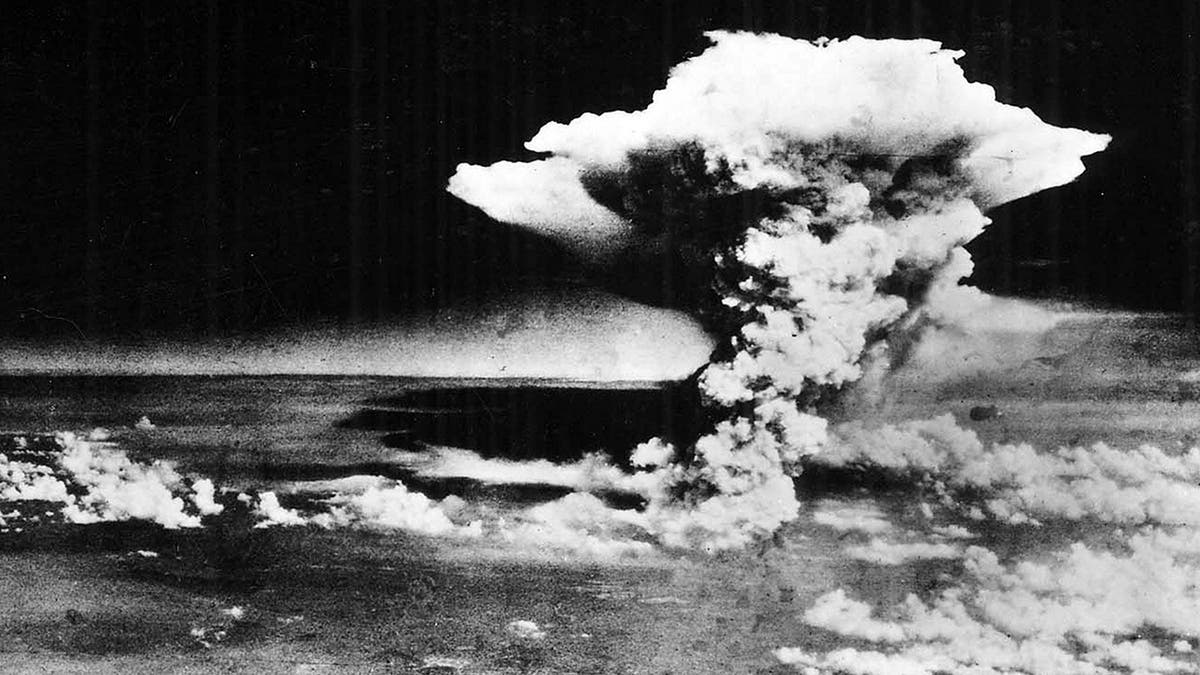
An aerial photograph of Hiroshima, Japan, shortly after the "Little Boy" atomic bomb was dropped on Aug. 6, 1945. Mitsuo Fuchida, the pilot who led Japan's attack on Pearl Harbor, was in Hiroshima only a day earlier. (Universal History Archive/UIG via Getty images)
DeShazer's story of loving his captors made the American airman something of a celebrity in both the U.S. and Japan after the war.
Fuchida later became friends with DeShazer, who lived in Japan for decades after the war.
"He remains a national hero in Japan. I have no idea how the world accepts him today." — Miyako Fuchida Overturf, Mitsuo Fuchida's daughter
"Fuchida was confounded" upon hearing DeShazer's story, said Bennett. "He didn't understand why you wouldn't hate your enemies and seek revenge and want to kill them."
Fuchida's warrior worldview, now in doubt, was shattered upon greeting his engineer, Kanegasaki, after the war.
CLICK HERE TO GET THE FOX NEWS APP
He shared with the war hero pilot the tales of Peggy Covell — the "angel" whose parents had been killed during the war, but who had treated him and other Japanese soldiers with such dignity as prisoners.
Fuchida began to pursue the source of love in the face of hatred shown by both Covell and DeShazer, which launched him on his spiritual journey.
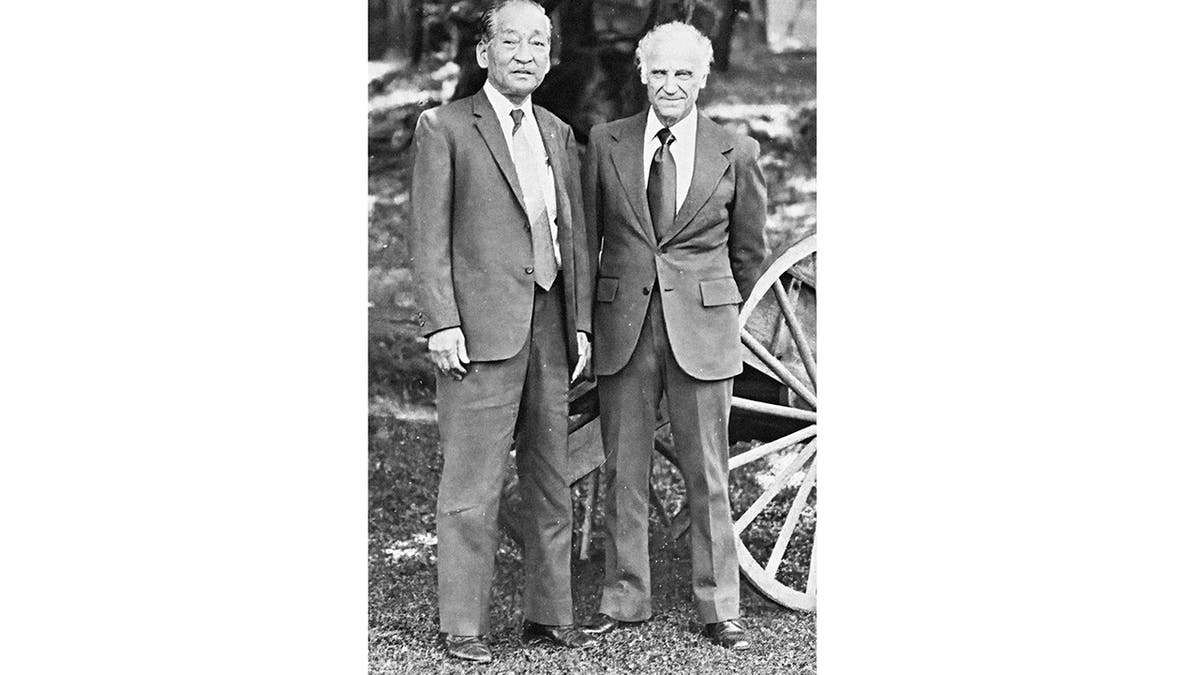
Mitsuo Fuchida (left), the Japanese pilot who led the attack on Pearl Harbor, and Jacob DeShazer, an American airman who spent 40 months as a prisoner of war during World War II. They became friends after the war, shown here while making a TV appearance in the 1970s. (Courtesy T. Martin Bennett)
"He remains a national hero in Japan," Miyako Fuchida Overturf, Fuchida's American daughter, writes in an endorsement of "Wounded Tiger."
She added, "I have no idea how the world accepts him today. Some will call him a villain; others will call him a proud warrior who found redemption. I will always admire his bravery, his intellect and his sincerity."
CLICK HERE TO SIGN UP FOR OUR LIFESTYLE NEWSLETTER
Fuchida's stature in Japan was so great after the attack on Pearl Harbor that he was one of the few people to meet Emperor Hirohito.
"He could have had fame and made a fortune," said Bennett.
"Instead, he lived in poverty, telling the world what God had done for him — which was to save him from a life of hatred."
For more Lifestyle articles, visit www.foxnews.com/lifestyle.









































